Things you miss when you're far away from Peru
When you're far away from your home country, you definitely miss things like your family, your friends and the food. But when you were born in Peru, you'll notice that you'll miss a lot more than that. You'll miss things that often went unnoticed in your daily life. As you know, I'm from Lima, and my parents are from the provinces. So I'm part of the "new Lima", a conglomeration of different bloods which, over the years, has been formed in Peru's capital. Seeing as today is the anniversary of my beloved nation, a lot of emotions come to mind. Also, as I'm a little ill and not able to leave the house and enjoy the Italian summer in Rimini, I may as well take advantage of being able to stay in and let my hands write a little something about the things you don't expect to miss about Peru to share with you all.
Italy is definitely a stunning country. There's lots to see and do. It has a history that can be seen in its food and in its various monuments, however, there are moments where I feel like I don't fit in. Obviously there's already a difference when it comes to language, but the way things look and the way the seasons change are also nothing like my beloved, grey Lima that is almost always adorned with a sky the colour of a "donkey's belly".
The idea to write this post came about a few days ago, when I was reading an article in the newspaper El Comercio which was part of the section "Vamos". So I'm going to try to elaborate a little on the points this article made so that all of you can get to know a bit about the daily life in Peru, all those things that go unnoticed, the things you don't think much about until you're far away and start to miss them like crazy.
The restaurants:
A place that doesn't serve great food doesn't exist in Peru. Do you know anywhere? I challenge you to give me an eatery in Peru that doesn't serve spectacularly tasty food. Gastón Acurio, one of the chefs that pretty much sum up Peruvian food, said the best examples of gastronomy are found in the markets, and I think he's right.
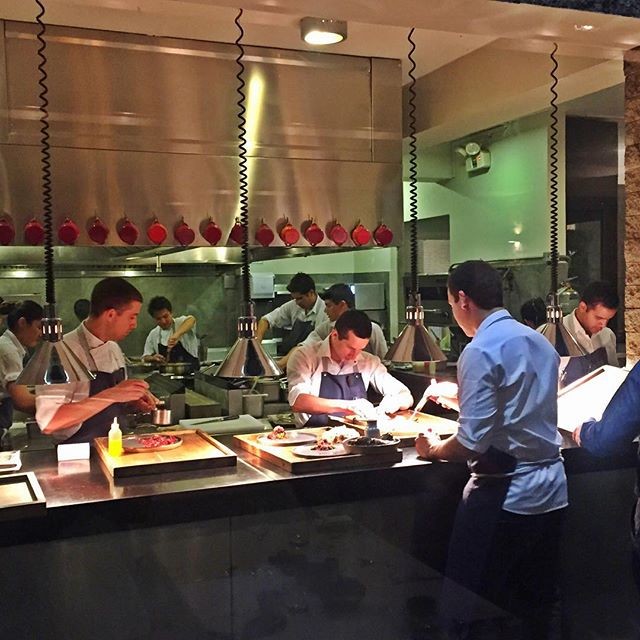
Now I want to focus on the Lima that I know. When you go into the centre of Lima, Avenida Tacna by the Sanctuary and Monastery of Las Nazarenas for example, you'll find stalls selling "anticucho" meats, from rachis to mollejitas, the wonderful smell they emanate makes you want to eat everything they make there. You won't want to leave without having tried at least a little mouthful.
Another place is the Chabuca Granda shopping centre, near Government Palace. Here you'll find tasty confectionery that'll seduce anyone who's a sweet-tooth like me. As if this weren't enough, there's nothing like walking around Kennedy Park (also known as cat park) where you can find doughnut and sweet stalls as well as tasty butifarra sausages.
When I lived in Barranca, I also remember there being a woman who sold chicken in bread with chips on the corner of my road. At the weekends there was a girl who sold tamales. You could choose between chicken or pork. As you may have noticed, in Peru, every mouthful is a marvel. And there are prices to suit every pocket. Gastronomy is something that unites the rich and the poor.
In Peru, we're so proud of our food that everything we make, we take photos of so that we can put it in a memory box. I'm not exaggerating, believe me, Peruvian food is fantastic.
The shops on the corner
These little businesses that sold everything under one roof often save you the trouble of going to the market or wherever you usually go to get your food shopping. Here in Italy, the most similar thing they have are the Tabbaccherias, but unfortunately these shut in the afternoon and open again later. Whereas in Peru they don't close, they're nearly always open, especially during lunch and dinner hours, so when a family want a soft drink, they can send their kid to go buy a coke to have with their lunch.
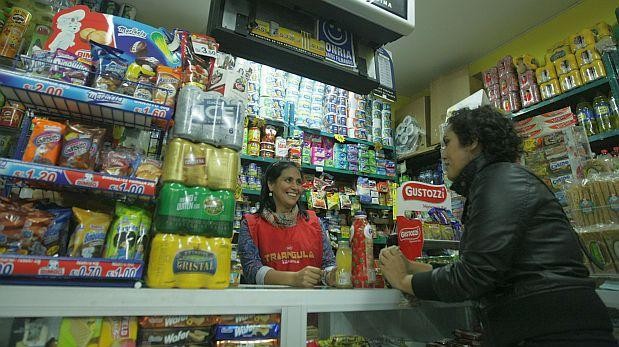
This reminded me of when I was younger and my mum or dad (well, mostly my mum) sent me out to get things they'd forgotten to buy at the market. I could always find them in the corner shop closest to my house which was called Reynoso. We could find everything we wanted there, from school supplies to toiletries, from phone chargers to sweets. Nowadays you can even make bank transactions and pay-in and withdraw cash from these corner shops.
Corner shops in Peru have had a bit of a turnaround over the last few years, they've been reinventing themselves. Besides, we always have our neighbourhood "casero/a", somebody who provides with any of our daily requirements. This is, without doubt, another thing I miss about my Peruvian culture.
The climate
I can't speak for all of Peru when it comes to weather since we have such an incredible variety of climates, it's as if we're a small world of our own placed on this planet. So, I would like to just focus on Lima. I know that lots of Lima's locals aren't thrilled at almost always having a sky the colour of a donkey's belly, but now that I'm roasting alive in the European summer heat, you have no idea how much I miss it.
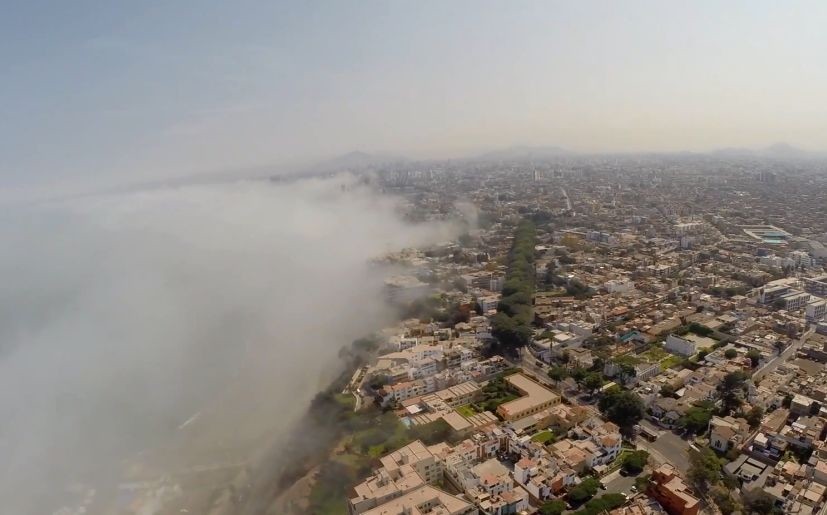
Lima's climate is humid, maybe that's why a lot of people aren't that keen on it. But personally, I love it. Furthermore, the winters aren't as harsh as they are in Europe. For example, in Lima you can go out in a light sweater and feel warm, while here in Italy you have to be wrapped up warm to go outside.
On the other hand, Lima's grey sky has been an advantage when it comes to its architecture since it's meant that Lima has built many different coloured buildings to contrast with Lima's "donkey belly" sky.
Haggling
In Peru, informal means of transportation are everywhere. Whether you go to a city, town or village, you'll always find a taxi or a bus where you can try you're luck at haggling the price down. If a trip costs 10 sols maybe you can get it down to 8 sols (the Sol is the Peruvian currency).
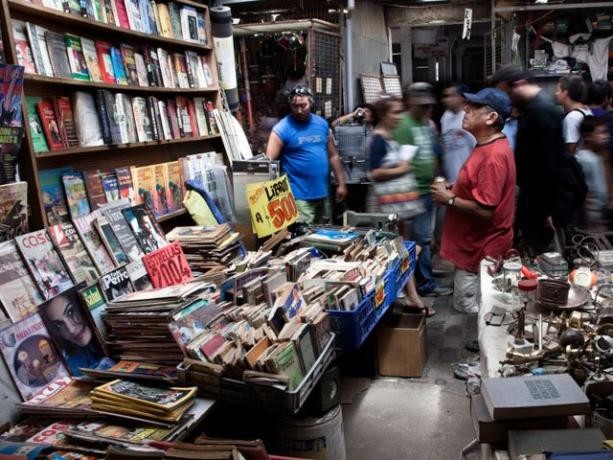
This is something that doesn't happen in Italy. I remember when I took a taxi in Venice at the start of the year, my jaw dropped to the floor. I could easily have paid for my food shop for two weeks with the amount the taxi driver was asking for. Whereas in Peru this taxi would cost the same as eating out in a budget restaurant in the capital two days on the trot.
I definitely miss this part of my culture. But at least living in Italy has given me the opportunity to look into other alternatives like using my bike to get around when if I'm going to the beach, or when I go to friend from university's house.
The music on public transport:
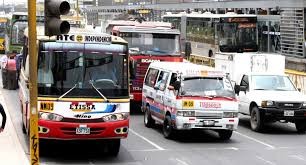
This is hard for me to say, but I have to admit, the rowdy music that played on the public transport in the middle of Lima's traffic somehow kept you awake until you reached your destination. They play everything from current music to the occasional radio-news - although this was very unusual. You can nearly always hear salsa, cumbia and reggeton, as these seem to be the favourite genres of both the driver behind the wheel and the ticket collector, who always says like "pisaaa", "dale", "habla vas", or "go to the back, there's room back there”, “one-way ticket”
The sayings
Every country has its idiosyncrasies and ways of expressing itself. In Peru, we have very Peruvian words like "Habla causa", "broder" and many others. Sometimes, they slip out when we're talking to other Spanish speakers that aren't Peruvian. I always let the word "chevre" slip out.

Here I've found a list of Peruvian sayings that we use daily. I had to try to use these less when I speak Spanish to my friends from other countries while studying here in Italy.
- Aguja (estoy aguja) - I have no money
- Asarse (me aso, se asa) - I'm offended
- Bacán (Qué bacán!) - Good, very good
- Bamba - something false or of low quality
- Bomba (Me metí una bomba, qué tal bomba! - a drunkard
- Cocos (10 cocos, 50 cocos) - US Dollar
- Cuero, Cuerito, Cuerazo - someone with a good body
- Chambear - to work
- Chancón - studious
- Chapar - besar
- Chelas - beers
- Chibolo/a - kid
- Chochera, Chocherita - friend
- Chusco - raceless, uneducated
- Embalar (voy embalado, iba embalado) - to go quickly
- Estar en algodón (estoy en algodón, esta en algodón) - to be attractive
- Franela, Franelero - a flatterer
- Florear - To speak unconvincingly
- Guachimán -a watchman
- Hacer la taba(me hizo la taba, te hago la taba) - to accompany
- Hembrita (mi hembrita, tu hembra) - lover
- Huevo (es huevo!) - easy
- Huevo de plata (tiene huevo de plata) - a lot of money
- Jatear (me quedé jato, se quedó jato) - to sleep
- Ladilla - someone that's insistently annoying
- Lo máximo - something really good
- Luca (una luca, dos lucas) - Sol (S/. ) (Peruvian currency)
- Manya! -look!
- Misio (estoy misio) - to be broke/without money
- Misión Imposible - to not have any money
- Papaya (es papaya!) - easy
- Papear - to eat
- Pata - friend
- Pedir una jaladita - to ask for a lift
- Perucho - someone from Peru
- Picar (me picó, voy a picarle) - to borrow something without intending to return it
- Picarse (me pico, se pica) - To not accept the result of a game
- Templarse - to be very in love
- Quitarse (me quito, se quita) - To go
- Reventar a alguien (lo reviento, me revienta) - to hit someone really hard
- Sacarse el ancho (me saqué el ancho) - to hit yourself really hard
- Ser pilas - to be active
- Ser sapo - to be inquisitive
- Ser corcho - to be a bit stupid
- Ser menso - To be really stupid
- Ser mosca - to be really attractive
- Ser una rata - to not have any doubts
- Tener un plancito - to have a romantic date
- Tonear (voy a tonear, ir a tonos) - to go to a party
- Tranca (es tranca!) - difficult!
- Vacilarse (me vacilo, se vacila) - to have fun
How close the beaches are:
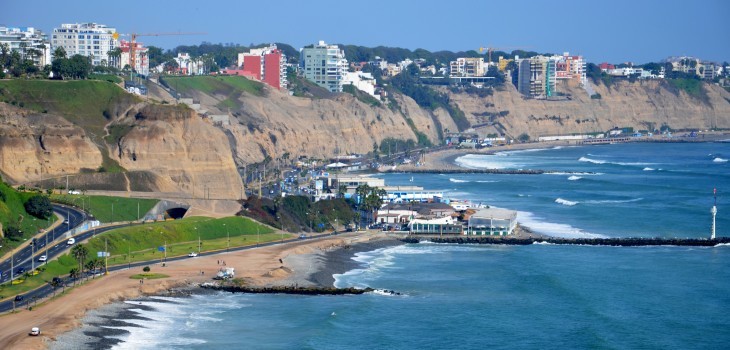
This is directed at my beloved Lima more-so than anywhere else. In the summertime, when the sun tempts you to go out and get a little sun-kissed glow, there's an endless array of options when it comes to beaches. There are beaches in the North and in the south of the city. I'm not much of a beach person, but I did like going at least once a year to sunbathe a little, going to Costa Verde when I lived in Barranco, and being able to see the sunset from the high point is something that will leave you breathless.
The prices
Some Peruvians may think living in Peru can be expensive. However, once you start to travel around the world you realise that Peru is a perfect mecca where live comfortably with little money. For example, here in Italy where I live, you pay loads for a simple kilo of grapes at the supermarket. You pay twice as much as you would in Peru.
What I like and miss about Peru is that since there's so much diversity, you can go to your landlady and buy natural medicine at a very low price. You can also buy an infinite amount of different types of potato. We're a country with over 4 thousand different kinds of potato. This country lives and breathes potatoes.
Street artists
Although street art is something you can find in many parts of the world, in Peru it has a touch of originality. So much so that you can easily spot a piece of art that is 100% Peruvian. I fondly remember walking through Jirón de la unión where you could find a little bit of everything: a unique character like Peruvian superman, a dog with an old man dressed in clothes with Andean details and robots that moved every time you put a coin in their can.
As we've been able to see, Peru is full of magic. Peru is a destination where you can experience so many things and you can make, live, feel and cry. Peru is a box of surprises, a paradise inviting us to come and discover it without ever wanting to stop exploring because every corner of Peru is full of authenticity. Don't think twice, come visit Peru! I'm sure you'll have one of the best experiences of your life because Peru is where you'll discover yourself.
I hope you liked this little homage to my beloved Peru and that you'll soon come to visit it. Thank you for reading this post, and see you in the next one! Until next time, guys.
Photo gallery
Content available in other languages
Want to have your own Erasmus blog?
If you are experiencing living abroad, you're an avid traveller or want to promote the city where you live... create your own blog and share your adventures!
I want to create my Erasmus blog! →










Comments (0 comments)